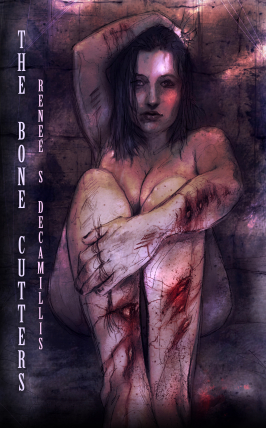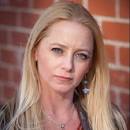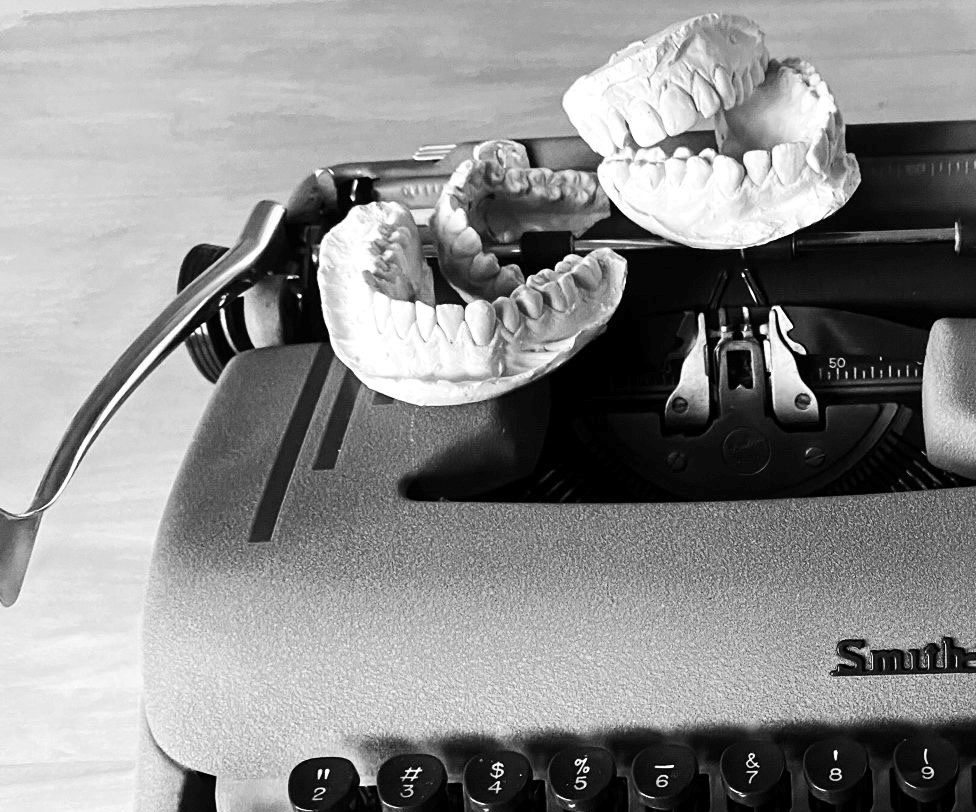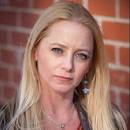Interview with Renee S. DeCamillis, Author of THE BONE CUTTERS

Dory wakes up in the padded room of a psychiatric hospital with no recollection of how she wound up there. She soon finds out she’s been Blue-Papered–involuntarily committed. She gets sent to the wrong counseling group and discovers a whole new world of psychiatric patients she’d never known existed. At first she just thinks they’re cutters, all marked by similar scars, but then she finds out that those scars are from carving into their own bodies where they chisel and scrape their bones. What they’re after–bone dust. It’s highly coveted and sought after. When they find out Dory’s never been “dusted”, she becomes their target. After all, dust from a “freshie” is much more valuable than theirs. Frightened for her life, she desperately tries to prove to the psych. hospital staff that she’s not delusional about these particular patients wanting to cut her open and scrape her bones. The staff doesn’t believe her. They all think she’s crazy. She ends up on the run and fighting for her life, trying to avoid getting “dusted” by The Bone Cutters.
Like Girl, Interrupted and “The Yellow Wallpaper”, The Bone Cutters is one woman’s dark and surreal experience with a madness that is not necessarily her own.
Cover Art by Erik Wilson, Eraserhead Press
Available at Amazon

When did you decide to become a writer? What shape did that path take?
Ever since I was a little kid I wrote song lyrics and poetry. And even though I loved literature, and all my English/Literature teachers said I should pursue a career in writing, I went against their suggestions. I thought being a writer would end in mental illness, drug/alcohol addiction, &/or suicide. So I rebelled, of course. And I pursued a musician’s path instead, since I’d been a musician since around the age of 8 or 9. Silly me–thinking that being a musician and working in the music field would be “safer” and more stable than a writer’s life.
Then in my late twenties/early thirties—while I was a performing singer & musician, and a psychology graduate working in the mental health field and in education—I rediscovered my love of literature & writing. I began writing more—adding stories to my earlier “dabbling”. That’s when I decided to dedicate myself to writing and literature. I went back to college for English Literature, then off to earn my MFA in Creative Writing, with a focus on Popular Fiction Writing, which I received in January 2014. Now here I am—a dark fiction and horror writer & editor. And I am in no way a drug addict or alcoholic, nor am I the least bit suicidal. Though my mental health is up for questioning. ;-) Ha! (Just kidding with that last one.)
The Bone Cutters is your debut novella. How does it feel to have your work finally noticed?
Well, “noticed”—I’m still waiting for that one. But accepted by a publisher, and now I have a book—I am fucking stoked beyond belief! I feel a bit accomplished. I actually finished a book-length story to a publishable form. That is the hardest part—finishing the work—I think, for many people who seek a career as a writer. I have a hard time leaving anything unfinished. It drives me crazy. But, here it is, I finished a book, and a publisher picked it up and loves it! I am over the moon excited!
Now I’m working on getting my next book to that level. As the saying goes—“No rest for the wicked”.
The book deals with mental illness and drug addiction. Did you do any research before writing a book set in a psychiatric hospital?
My life is all I needed for research. I’ve lived around mentally unstable people my whole life, and drug addicts and alcoholics have peppered my life ever since I was a very young child—from family members, to friends, to boyfriends, etc. You name it, I’ve dealt with them. I also, as I already mentioned, have a degree in psychology, and I worked in the mental health field for years, and at one point I did a short stint as a psychological technician in a psychiatric hospital. That job ended horribly, and though the head nurse begged me to stay there and work with her, I refused to work there any longer. I couldn’t deal with all that goes wrong with the staff and the establishments who are suppose to help those patients—only to do them harm in the end. I was mortified by that experience, as well as many other experiences I had in other jobs within the mental health field. There are all sorts of wrongs going on, and I didn’t have the emotional capacity to stay in a field where I’d be fighting the system on a daily basis, and making calls to DHHS on a near-daily basis. I am what is known as a whistle-blower. I couldn’t/can’t sit back and let all the wrongs go unreported—I reported them all. So, a lot of my inspiration for this book came from those jobs and experiences I had or had seen, as well as my personal life experiences.
Without giving too much away, the concept of “dusting” is wonderfully disturbing. How did the idea come about?
It came from a nightmare I had.
I was at an Artwalk in Portland, Maine with a good friend of mine. She said she needed to stop by some place for a quick minute to see a friend of hers, and asked if I minded. I went with her. What we walked into was a group counseling session, though I didn’t know that at first. What I saw was a bunch of people, all scarred, sitting around in a big circle discussing things. As I stared at their scars wondering what was up, that’s when I heard one of them talk about the “dusting”. And BOOM, I went from there. It was so disturbing and insane and creatively awesome that I couldn’t wait to write it into a story. I started writing it that same day. Even though I was in the middle of writing my current novel-in-progress, I started this new story. I just plopped that group counseling scene from my nightmare into a more realistic setting—a psych. hospital. Then I imagined who it could be walking in on that scene, so I switched my point of view to that of another psych. patient who knew nothing about dusting and who didn’t belong in that group at all. Then all sorts of other inspiration played into the rest of the story, as I already mentioned.
What was the most challenging aspect of writing The Bone Cutters?
Finding the time to write and revise and edit was the hardest part for me. At the time, I was a new mom—a stay at home mother—with a baby and a husband that worked 50-60 hours each week. I had to start getting up at 4 AM, while the rest of the house was asleep, to get my writing done. And that schedule has stuck with me ever since.
There are music references throughout the novel. What role does music play in your life?
I’ve loved music ever since I can remember. As a very young child I would run around singing songs I made up on-the-fly. (Man, I wish I had recordings of those scenes. I have no idea what I was singing about. I just loved to sing!) And I became a musician, with saxophone as my first instrument, around the age of 8 or 9. I moved on from there to guitar at the age of 12. My album and cassette tape collection (Yes, I know I am dating myself here.) began growing faster than my book collection. With all the hours I spent practicing guitar, reading took second place for quite a while. After high school I went to Berklee College of Music, with a major in music business with guitar was my principle instrument. From there I went on to work at an indie record label for a while when I loved in Florida. Then my personal life took a bit of a crash, and a major upheaval was needed. I packed all my stuff, 4 cats included, and moved to the dessert of Arizona to get lost and find myself.
Through the years since then, I’ve been in a number of bands taking on various roles: backup singer, hand percussionist, rhythm guitarist, then finally landing in the role of lead singer with the last two bands I was in. That is the role I’d always wanted and had to work towards. I’m also married to a musician, a bass player, and we’ve been in a couple bands together. Those were a lot of fun! Right now I’m on a bit of a hiatus with working in bands, at least until my son starts kindergarten and I can find some more time to practice. Music is and always will be a huge part of my life. Just like with writing, if I go too long without playing music I get very depressed. For me—music=life.
What is in your to-read pile? What are you currently reading?
Currently reading: The Changeling, by Victor LaValle
My to-read pile: Growing Things, by Paul Tremblay; Curious Toys, by Elizabeth Hand, when it comes out in October; Full Throttle, by Joe Hill; Adjustment Day, by Chuck Palanuik; The Great and Secret Show by Clive Barker; The Dead Girls Club by Damien Angelica Walters—when it comes out in December.
I also have a list of horror writers I’ve never read but want to, starting with Stephen Graham Jones–Mongrels & Demon Theory & Mapping The Interior are first on my list here. I also want to check out Mary SanGiovanni—Inside the Asylum & Savage Woods. This list of writers is far too long, and I fear I’ll never have time to read them all.
What makes for a good horror story? Name your favorite anthology:
For me, a good horror story is one that doesn’t put it all out there, one that follows the “more-is-less” sort of writing. I think horror is best when it leaves more up to the imagination, leaving the reader with more questions in the end, a story that leaves you wanting more, one that doesn’t show it all or explain it all. In the end, horror is just that—the unknown, what the imagination can dream up, the numerous possibilities of what could be or what could happen.
My favorite anthology—That’s tough because not all of them that I’ve read have I liked every story. And, dare I say, there are many that I haven’t read every story within it, and that’s usually because I came to a couple stories I didn’t care too much about and that made me put the whole book aside. But anthologies that I keep checking out are various anthologies from Crystal Lake Publishing, which is what made me seek out working with them as an Editorial Intern.
As for other anthologies I do often like a lot, I can say that most anything Ellen Datlow has compiled has been a winner for me, and I love to check out her The Best Horror of the Year collections. I really need to collect all of those volumes and fast! Darkness: Two Decades of Modern Horror and Supernatural Noir are a couple other collections from her that I own and love.
Is your approach to short stories different from how you write novels?
Yes and no. When I start writing a story, I don’t always start out knowing if it will be a short story or something longer. With The Bone Cutters I had actually set out to write it as a short story, but it grew bigger as I was creating it.
When I started getting more serious about my writing, short stories were where I thought I wanted to put my focus. I was scared to tackle writing a novel, but I feel that table has flipped. I now find that my ideas get so big that I can’t fit them into the short story form.
If you could possess any artifact from any scary movie or horror novel, what would it be and why?
That’s easy. No doubt, it’s the Hellraiser Le’ Marchant box, the puzzle box, Lament Configuration. I’ve wanted one for so long now, and I WILL have one someday. I just have to.


Comments
Interview with Renee S. DeCamillis, Author of THE BONE CUTTERS — No Comments
HTML tags allowed in your comment: <a href="" title=""> <abbr title=""> <acronym title=""> <b> <blockquote cite=""> <cite> <code> <del datetime=""> <em> <i> <q cite=""> <s> <strike> <strong>